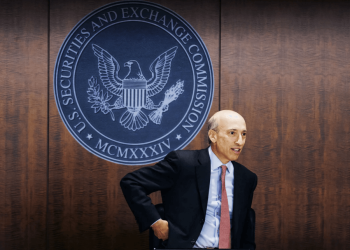US House of Representatives to Vote on Controversial Infrastructure Bill Today
The controversial trillion-dollar infrastructure bill that included an overreaching definition of ‘broker’ covering crypto miners, stakers, lenders, and decentralized applications, is now going for a vote in the US House of Representatives on Friday.
Back in August, the bipartisan infrastructure bill had already passed in the Senate.
On Thursday night, President Joe Biden called various House members and urged them to approve the $1.75 trillion reconciliation bill, a White House official said.
“The infrastructure bill is heading for a vote in the House. Yes, the crypto provisions are just as bad as they were months ago. Yes, the impact of Section 6050I has been underexplored. No, you don’t need to call your reps. The political reality is: it’s out of our hands now,” said Jake Chervinsky, Strategic Advisor at crypto fund Variant Fund.
1/ Been getting a lot of questions about this. Yes, this is a big deal and it was part of the same tax reporting provision that we fought in the Senate in August/September. https://t.co/alO8xoaw3Y
— Jerry Brito (@jerrybrito) November 4, 2021
The good thing here is that nothing will happen right away, and its crypto provisions won’t go into effect until 2024, he added.
“We can try to get them repealed or amended before then. They also need rulemaking from the Treasury to define their scope. We’ll be active in that process,” Chervinsky said.
After making a big impact during the Senate vote, now is not the time to fight but to wait as there’s a long road ahead. Additionally, he said that the 2022 midterm elections are also coming that could significantly reshape Congress and its attitude toward crypto.
“While House leadership wants to vote on the bill this week, it has already been schedule and postponed twice because of disagreement within the Democratic caucus,” said Jerry Brito, executive director of Coin Center, a non-profit focused on the policy issues facing cryptocurrencies. We “pledged to challenge it in court if it became law,” he added.



















